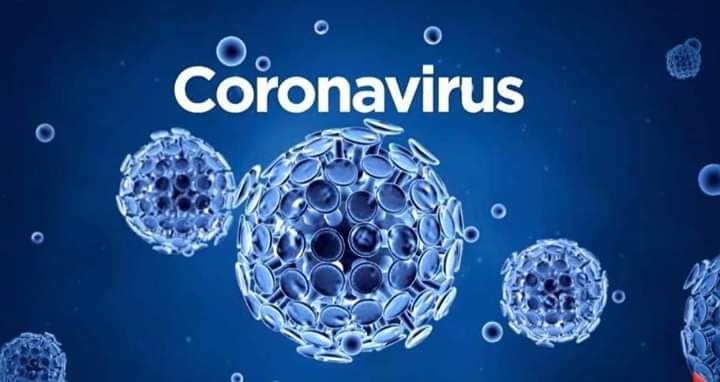Corona virus Death.
Edited from Chidi Samuel (Alabingo blog).
Nigeria Corona virus death rate continues to rise as Nigeria recorded over 801 deaths. Meaning that average of 50 Nigerians die of COVID-19 weekly. The fatality rate of Corona virus is 2%.
Nigeria on Tuesday recorded 562 new coronavirus cases, bringing the country’s toll to 37, 225. According to the latest figures released by the Nigeria Centre for Disease Control (NCDC), the Federal Capital Territory (FCT) had the highest COVID-19 cases 102, closely followed by Lagos with 100, Plateau 52, Kwara 50, Abia 47, Kaduna 35, Benue 34, Oyo 26, Ebonyi 24, Kano 16, Niger 15 and Anambra 14.
Other states with new infections include, Anambra-14, Gombe-12, Edo-11, Rivers-6
Nasarawa-5, Delta-5, Borno-3, Enugu- 2, Bauchi-2 and Kebbi- 1.
The NCDC further noted that Nigeria currently has 37, 225 confirmed cases of the novel coronavirus, with 15,333 discharges and 801 deaths.
The tweet read, 562 new cases of #COVID19Nigeria;
FCT-102
Lagos-100
Plateau-52
Kwara-50
Abia-47
Kaduna-35
Benue-34
Oyo-26
Ebonyi-24
Kano-16
Niger-15
Anambra-14
Gombe-12
Edo-11
Rivers-6
Nasarawa-5
Delta-5
Borno-3
Enugu- 2
Bauchi-2
Kebbi- 1
37,225 confirmed
15,333 discharged
801 deaths
–Two coronavirus vaccines ‘produce immune response’
Meanwhile, two COVID-19 vaccine candidates have proven safe for humans and produced strong immune reactions among patients involved in two separate clinical trials, doctors said Monday.
The first trial among more than a thousand adults in Britain found that the vaccine induced “strong antibody and T cell immune responses” against the novel coronavirus.
A separate trial in China involving more than 500 people showed most had developed widespread antibody immune response.
The studies, published in The Lancet medical journal, constitute a major step on the road towards a COVID-19 vaccine that is effective and safe for widespread use.
The authors of the studies said they encountered few adverse side effects from the vaccine candidates.

They did, however, caution that more research was needed, particularly among older adults, who are disproportionately at risk of dying of COVID-19.
Co-author Sarah Gilbert from the University of Oxford said the results “hold promise”.
“If our vaccine is effective, it is a promising option as these types of vaccine can be manufactured at large scale.”
– Dozens of candidates –
The pandemic has seen an unprecedented mobilisation of funding and research to rush through a vaccine that can protect billions of people worldwide.
More than 20 candidate vaccines are currently being tested on humans.
Both studies were phase-2 trials, which test whether the vaccine provokes an immune response and can be well tolerated by patients.
For its trial, the team at Oxford used a genetically modified strain of the common cold virus that infects chimpanzees.
They manipulated the virus to train cells to recognise the viral spike protein, which helps teach the immune system to recognise COVID-19.
As well as developing antibodies in their blood, patients given the vaccine were found to have developed a robust T cell response — helping their body identify and neutralise the virus.
“The immune system has two ways of finding and attacking pathogens — antibody and T cell responses,” said Andrew Pollard, a member of the Oxford team.
“This vaccine is intended to induce both, so it can attack the virus when it’s circulating in the body, as well as attacking infected cells.”
The Oxford team found that among the 500 or so patients given a single dose of the vaccine — developed jointly with pharmaceutical giant AstraZeneca — their immune response peaked around 14 days and decreased slightly by day 56, the end of the study period.
The other 500 patients were instead given a meningitis vaccine as a placebo.
– Phase-3 next –
The second trial, led by China’s Jiangsu Provincial Center for Disease Control and Prevention, used a weakened human cold virus modified to deliver genetic material that teaches cells to recognise the novel coronavirus.
Two groups of patients were given either a high or low dose of the vaccine.
More than 90 percent of people in both groups showed either antibody or T cell immune responses between 14-28 days post vaccine.
Side effects in both trials were moderate but authors of the Chinese study said they needed to test the vaccine safety on older patients.
“Elderly people… are an important target population for a COVID-19 vaccine,” said Wei Chen, from the Beijing Institute of Biotechnology.
“It is possible that an additional dose may be needed in order to induce a stronger immune response in the elderly population.”
Both studies found severe side effects from the vaccine to be rare.
Jonathan Ball, professor of molecular virology at the University of Nottingham, said that while the two vaccines were encouraging, he cautioned there was “a long way to go”.
“It is unclear whether the levels of immunity can protect against infection — that’s what the larger ongoing phase-3 trials are designed to test,” said Ball.
“Nor do we know if this vaccine can protect those most vulnerable to severe COVID-19 disease.”
